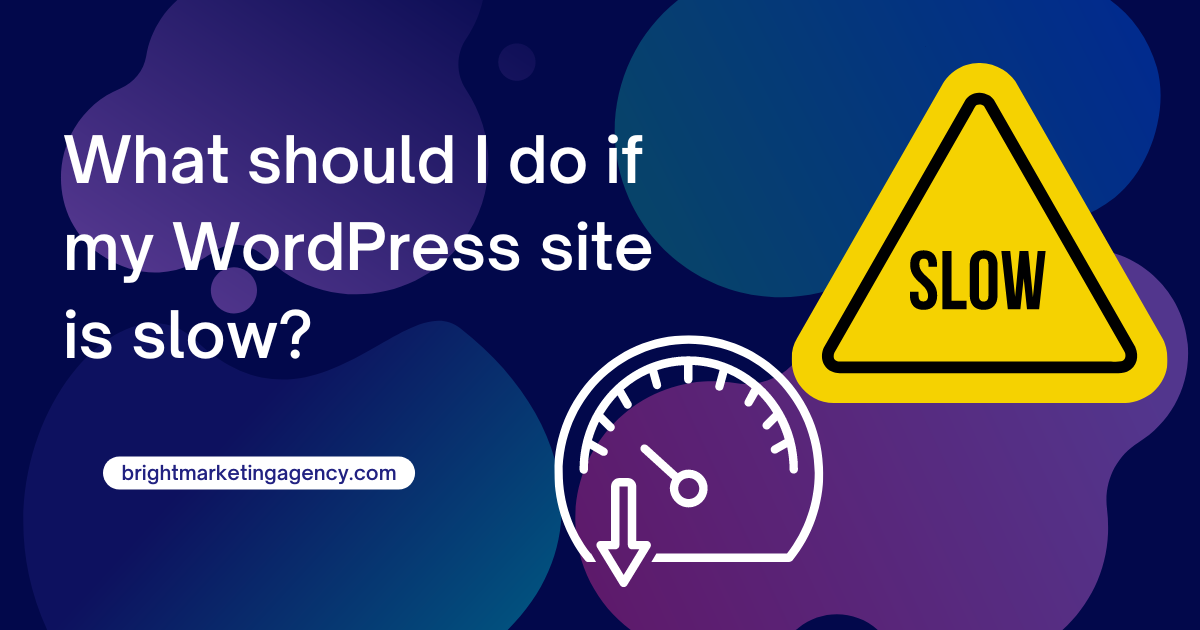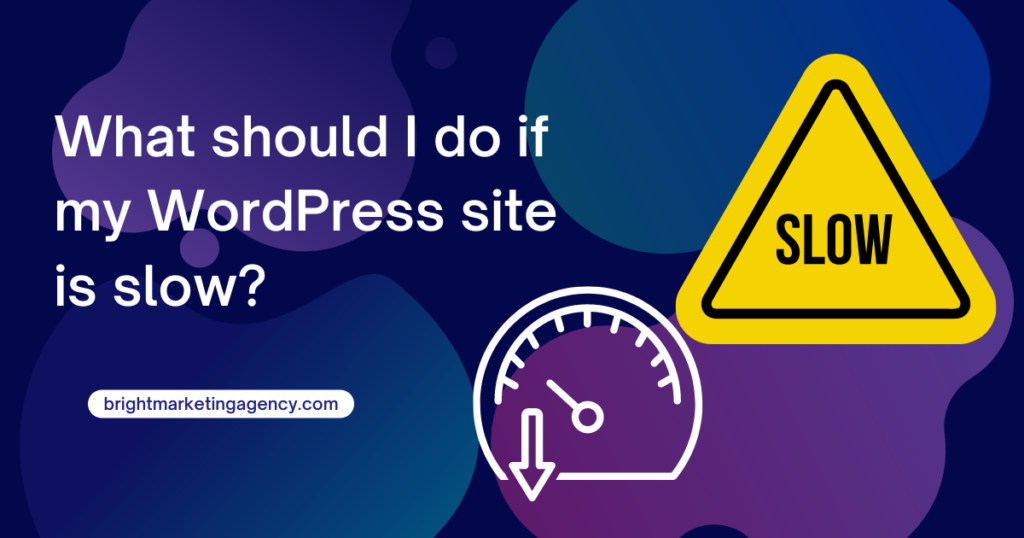If your WordPress site is slow, there are several steps you can take to identify and resolve the issues. Here’s a detailed guide:
1. Choose a Reliable Hosting Provider
Hosting Type: Ensure you’re using a hosting plan that suits your site’s needs. Shared hosting is cheaper but can be slow during traffic spikes. Consider upgrading to VPS, dedicated, or managed WordPress hosting.
Hosting Performance: Use hosting providers known for their speed and reliability, such as SiteGround, WP Engine, or Kinsta.
2. Enable Caching if WordPress site is slow
Caching Plugins: Install and configure a caching plugin like W3 Total Cache, WP Super Cache, or WP Rocket. These plugins create static versions of your pages, reducing the load on the server.
Browser Caching: Configure your caching plugin to leverage browser caching, which stores static files in visitors’ browsers for faster loading on subsequent visits.
3. Optimize Images
Compression: Use image compression plugins like Smush, Imagify, or ShortPixel to reduce the file size of images without compromising quality.
Proper Format: Use appropriate image formats. JPEGs are best for photographs, while PNGs are better for graphics with fewer colors.
4. Minimize and Combine Files
Minification: Use plugins like Autoptimize or W3 Total Cache to minify CSS, JavaScript, and HTML files, which reduces their size.
Combining Files: Combine multiple CSS and JavaScript files into single files to reduce the number of HTTP requests.
5. Use a Content Delivery Network (CDN)
CDN Services: Services like Cloudflare, MaxCDN, or Amazon CloudFront store copies of your site’s files on servers around the world, reducing the physical distance between your server and your site’s visitors.

Setup: Many caching plugins integrate with CDNs, making setup easier.
6. Optimize Your Database
Database Cleaning: Use plugins like WP-Optimize or WP-Sweep to clean up your database by removing unnecessary data such as post revisions, spam comments, and transient options.
Database Optimization: Regularly optimize your database tables to ensure they run efficiently.
7. Reduce External HTTP Requests
Third-Party Resources: Minimize the use of third-party scripts and resources. For example, limit the number of fonts loaded from Google Fonts or social media embeds.
Local Hosting: Where possible, host scripts and files locally rather than relying on external sources.
8. Enable GZIP Compression
Compression Tools: Use plugins or server settings to enable GZIP compression. This reduces the size of files sent from your server to visitors’ browsers.
Server Configuration: If you have access to your server settings, you can enable GZIP by adding specific code to your .htaccess file.
9. Update WordPress, Themes, and Plugins
Regular Updates: Ensure that your WordPress core, themes, and plugins are always up to date. Updates often include performance improvements and security patches.
Quality Plugins/Themes: Use well-coded and regularly updated themes and plugins. Poorly coded add-ons can significantly slow down your site.
10. Use a Lightweight Theme
Theme Selection: Choose a lightweight theme designed for speed. Themes like Astra, GeneratePress, or Neve are optimized for performance.
Remove Unnecessary Features: Disable or remove theme features you don’t need, as they can add unnecessary bloat.
11. Optimize Your Homepage
Content Reduction: Limit the number of posts displayed on your homepage. Displaying excerpts instead of full posts can also help.
Widgets and Plugins: Remove unnecessary widgets and plugins from the homepage to reduce loading time.
12. Monitor and Analyze Performance
Performance Tools: Use tools like Google PageSpeed Insights, GTmetrix, or Pingdom to analyze your site’s performance and identify areas for improvement.
Regular Monitoring: Regularly monitor your site’s performance to catch and address issues promptly.
By systematically addressing these areas, you can significantly improve the speed and performance of your WordPress site. Regular maintenance and optimization are key to ensuring your site remains fast and efficient.
If you can not handle all these process, we can help you in all process. Our WordPress development and management services available.

